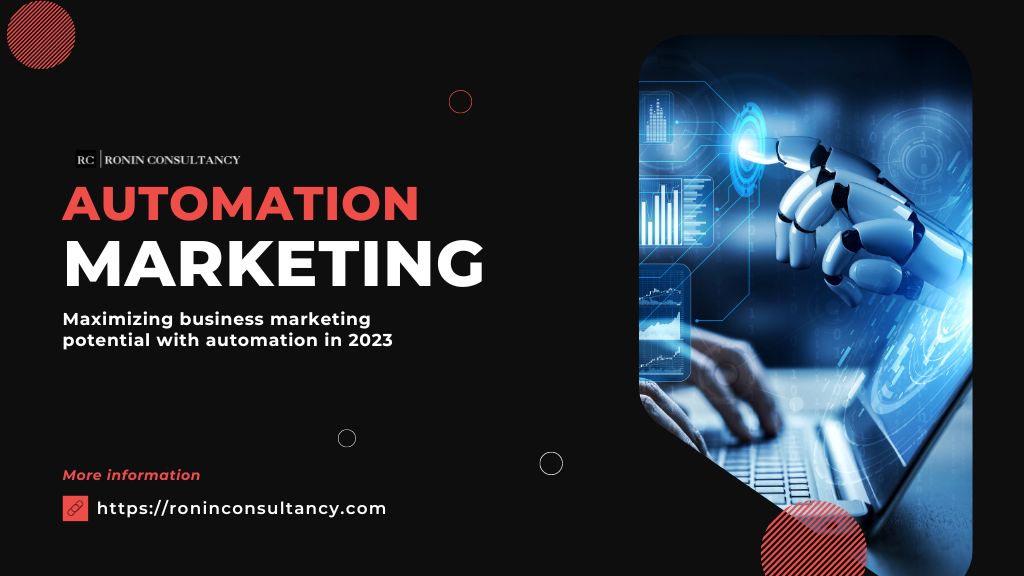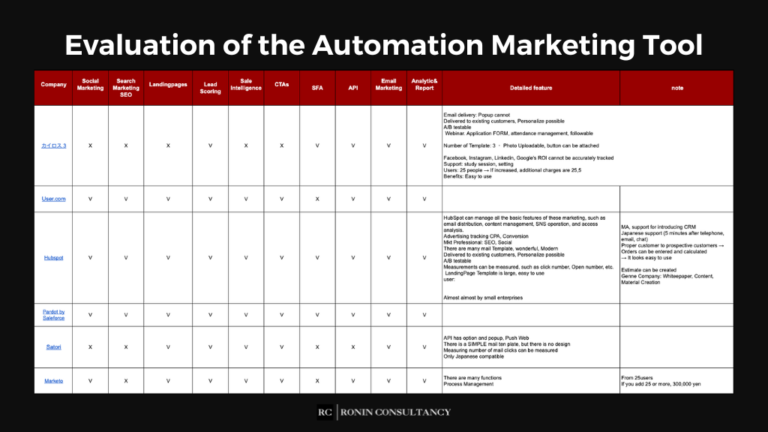
For businesses trying to prosper and expand, staying ahead of the curve in the dynamic world of marketing is crucial. Marketing automation is one of the primary tactics that has continuously demonstrated its value. The market for marketing automation software is anticipated to increase at an annual rate of 8.55 per cent in 2023, leading to a US$6.4 billion market value by 2024. Over 51% of businesses already utilize marketing automation, and the remaining 49% aim to do so.
In this article, we’ll explore the cutting-edge innovations in the field of marketing automation in 2023, as well as the intriguing world of marketing automation and how it functions.
Marketing automation gathers information about prospective and current customers. This data could include information on the pages they viewed on your website, products they added to their baskets or bought, whether they read your email, how they interacted with your social media profiles, and more.
Marketing automation software creates customer profiles and segments your audience into groups using this data. Then, your marketing department may develop customized messaging and content for each user.
Marketing automation tools may assess how your target audience reacts to content and make adjustments as necessary to ensure that your company is consistently publishing winning content. Customers will receive content from these technologies, keeping your marketing staff always in front of them and in close contact with them. We can use Marketing Automation tools to track customer journeys and find out what our potential customers are interested in.
Leveraging a sales and marketing automation tool is pivotal for modern businesses to excel in their customer engagement efforts. These tools serve as invaluable assets by facilitating lead nurturing and lead generation, effectively streamlining customer interactions and personalization. By tracking customer engagements across diverse channels like email, social media, and website visits, these platforms empower businesses to gain valuable insights and improve their strategies.
Furthermore, these tools significantly reduce manual efforts and enhance efficiency, particularly in email outreach to potential customers. Perhaps most importantly, they enable website personalization based on visitor interests and behaviours, thus creating a more tailored and engaging user experience. This level of sophistication in marketing and sales automation is indispensable in today’s competitive landscape, ensuring that businesses can connect with their audience in a meaningful and efficient manner while driving growth and success.
How do businesses choose a qualified automation product?
As determined by the G2 ranking, the most credible platform for comparing business software and services based on user reviews and social data, a product considered to be Marketing Automation must meet the following requirements:
- Automate two or more of the following: email, social media, SMS, and digital ads
- Provide advanced email marketing capabilities, including A/B testing and spam filter testing, scheduling, segmentation, and detailed performance reporting
- Act as a central marketing database for marketing information and interactions
- Allow dynamic segmentation of marketing campaign targets
- Contact targets across multiple channels after specific actions, triggers, or periods
- Perform lead management to include lead nurturing and lead scoring
- Generate forms and landing pages to collect prospect information
- Provide analytics and reports that track the entire lifecycle of a campaign, including ties to revenue and/or campaign ROI
To save employees time and effort and assist consumers in customizing their customer experience journeys with prioritized information and timely messaging, several businesses have incorporated marketing automation into their processes. There are some automation marketing tools that Marketing Automation tools like Salesforce, HubSpot, and Marketo have become indispensable assets for businesses seeking to streamline their marketing efforts and enhance customer engagement.
These platforms offer a wide range of features that enable companies to automate repetitive tasks, nurture leads, and track customer interactions more effectively. Salesforce, a customer relationship management (CRM) system, helps organizations manage their sales and marketing processes seamlessly. HubSpot offers inbound marketing and sales automation solutions, making it easier for businesses to attract, engage, and delight customers. Marketo, on the other hand, specializes in marketing automation, allowing companies to create targeted campaigns, monitor campaign performance, and generate valuable insights for data-driven decision-making. In today’s competitive landscape, these tools empower businesses of all sizes to optimize their marketing strategies and ultimately drive growth.
Evaluating Marketing Automation Tools by Ronin Consultancy
Ronin Consultancy conducted some research that compared some Marketing Automation Tools so you could save time in your search for the best Marketing Automation Tool. Take a look at our table to find out which tool is most appropriate for automating your business’s marketing in the table below:

Read More:Is Generative AI good for your Marketing
In conclusion, marketing automation remains a game-changer in the marketing industry. Its ability to streamline processes, enhance customer engagement, and drive revenue growth makes it an indispensable tool for businesses of all sizes. As we move forward into 2023, I encourage you to explore the possibilities of marketing automation and to stay informed about the latest trends and technologies. By doing so, you can position your business for success in an ever-evolving marketing landscape.
